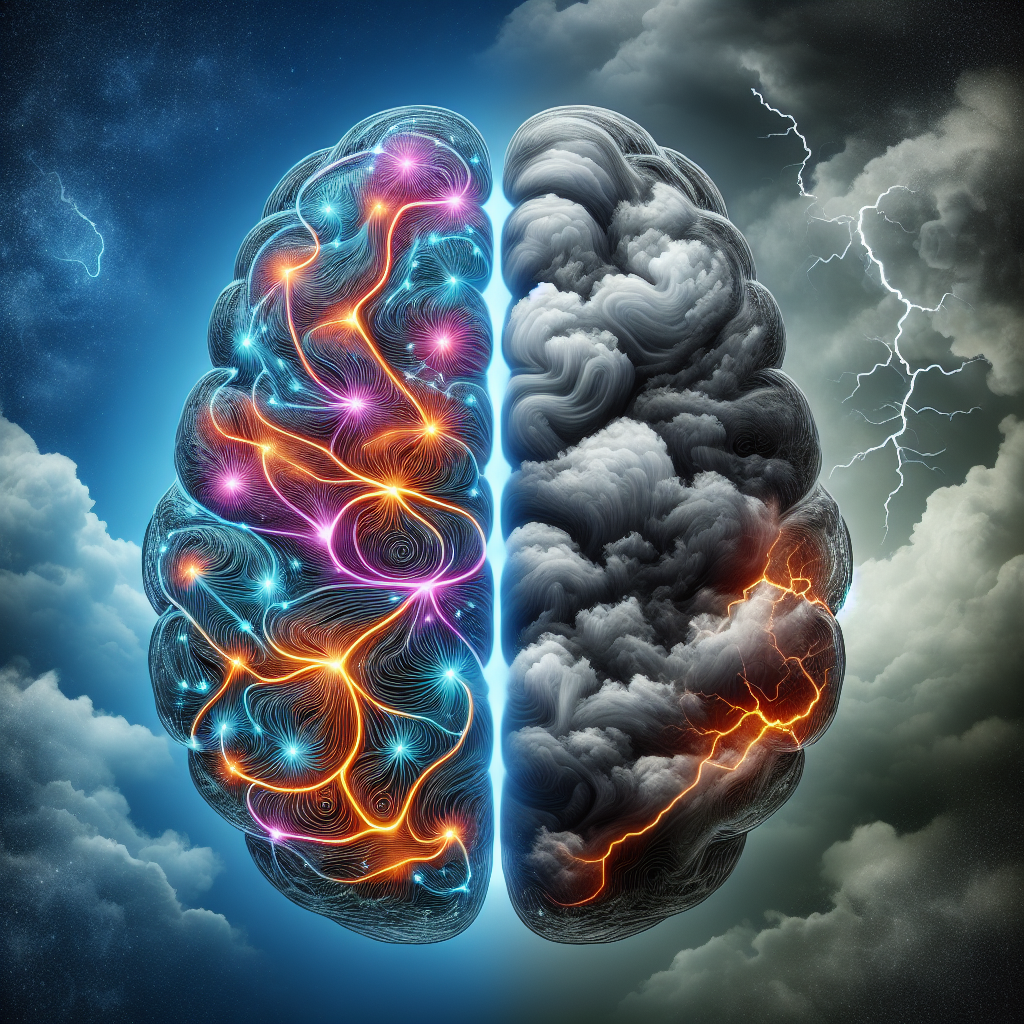Neuropsychology and Mental Health: Exploring the Link Between Brain Function and Psychological Disorders
Neuropsychology is a field of Psychology that focuses on understanding the relationship between the brain and behavior. It examines how the brain’s structure and function influence a person’s cognitive abilities, emotions, and behaviors. Mental health, on the other hand, refers to a person’s emotional, psychological, and social well-being. It encompasses our thoughts, feelings, and behaviors and how we cope with the ups and downs of life.
The connection between neuropsychology and mental health is a complex and intricate one. Research has shown that changes in brain structure and function can impact a person’s mental health and lead to the development of psychological disorders. Understanding this link is crucial for developing effective treatments and interventions for individuals struggling with mental health issues.
In this article, we will explore the relationship between neuropsychology and mental health, how changes in brain function can impact psychological disorders, and the importance of addressing both the biological and psychological aspects of mental health.
The Link Between Brain Function and Psychological Disorders
Our brain is a complex organ that controls every aspect of our behavior, thoughts, and emotions. Changes in brain function can have a profound impact on our mental health and well-being.
Neuropsychological research has identified several ways in which alterations in brain structure and function can contribute to the development of psychological disorders. For example, research has shown that abnormalities in the prefrontal cortex, which is responsible for decision-making and impulse control, can lead to impulsivity and a lack of inhibition seen in disorders such as ADHD and substance abuse.
Similarly, abnormalities in the amygdala, which plays a crucial role in processing emotions, can contribute to the development of anxiety disorders and mood disorders. Changes in neurotransmitter levels, such as serotonin and dopamine, can also impact mood regulation and lead to the development of depression and other mood disorders.
In addition to understanding how changes in brain function can contribute to psychological disorders, neuropsychologists also study how psychological factors can impact brain function. Stress, trauma, and other environmental factors can have a significant impact on the brain’s structure and function, leading to changes in behavior, emotions, and cognition.
The Role of Neuropsychology in Mental Health Treatment
Neuropsychology plays a crucial role in the assessment and treatment of individuals with psychological disorders. By understanding the underlying brain mechanisms that contribute to the development of mental health issues, neuropsychologists can develop targeted interventions that address both the biological and psychological aspects of the disorder.
Neuropsychological assessments are used to evaluate a person’s cognitive abilities, emotional functioning, and behavior in order to identify areas of strengths and weaknesses. These assessments can provide valuable information about how changes in brain function may be contributing to the person’s symptoms and help guide treatment planning.
Neuropsychologists also work closely with other mental health professionals, such as psychiatrists, therapists, and counselors, to develop comprehensive treatment plans that address both the biological and psychological aspects of the disorder. This may include a combination of medication, therapy, and cognitive rehabilitation to help the individual manage their symptoms and improve their overall well-being.
FAQs
Q: What is the difference between neuropsychology and neuroscience?
A: Neuropsychology is a branch of psychology that focuses on understanding how the brain’s structure and function influence behavior and cognition. Neuroscience, on the other hand, is a broader field that encompasses the study of the brain and nervous system, including both the biological and psychological aspects of brain function.
Q: How can neuropsychology help individuals with mental health disorders?
A: Neuropsychologists can help individuals with mental health disorders by conducting assessments to identify cognitive strengths and weaknesses, developing tailored treatment plans that address both the biological and psychological aspects of the disorder, and providing cognitive rehabilitation to help improve cognitive functioning and overall well-being.
Q: Can changes in brain function be reversed?
A: In some cases, changes in brain function can be reversed or mitigated through targeted interventions, such as medication, therapy, and cognitive rehabilitation. However, the extent to which changes in brain function can be reversed depends on the underlying cause and severity of the disorder.
Q: How can I find a neuropsychologist in my area?
A: You can find a neuropsychologist in your area by contacting your healthcare provider or mental health clinic for a referral. You can also search online for neuropsychologists in your area and contact them directly to inquire about their services and availability.




Leave A Comment